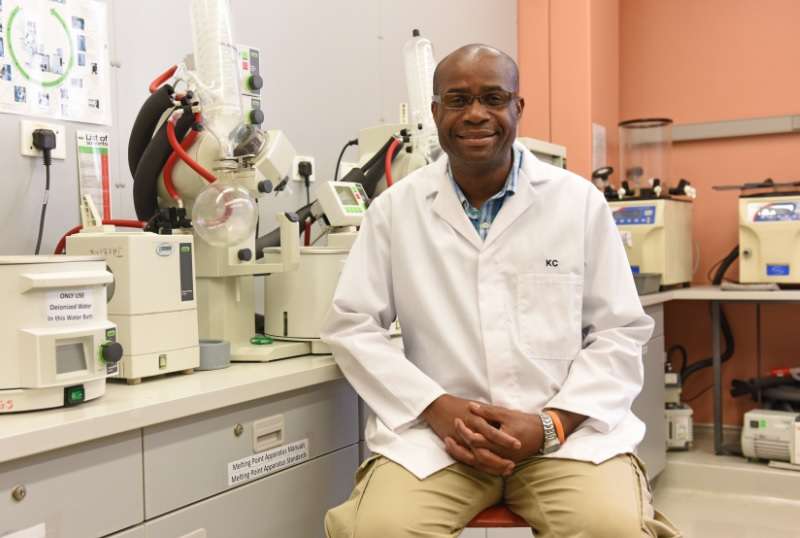New publication highlights the anti-malarial efficacy of exciting new clinical candidate

A new paper published today in the prestigious journal Science Translational Medicine describes the discovery and biological profiling of an exciting new anti-malarial clinical drug candidate, MMV390048, effective against resistant strains of the malaria parasite, and across the entire parasite lifecycle, with the potential to cure and protect in a single dose. The research was conducted by the University of Cape Town (UCT)'s Drug Discovery and Development Centre, H3D, and Medicines for Malaria Venture (MMV), in collaboration with a team of international researchers.
The paper is the first full disclosure of data demonstrating the antimalarial promise of MMV390048 (also known as MMV048), a compound discovered by an international team led by Professor Kelly Chibale at UCT and MMV.
"The ability of MMV048 to block all life cycle stages of the malaria parasite, offer protection against infection as well as potentially block transmission of the parasite from person to person suggests that this compound could contribute to the eradication of malaria, a disease that claims the lives of several hundred thousand people every year," said Professor Chibale, Founder and Director of H3D, founding Director of the South African Medical Research Council (SAMRC) Drug Discovery Research Unit at UCT, and senior author of the paper.
In 2014, MMV048 became the first new antimalarial medicine to enter phase I human studies in Africa. Today, preparations are being made to begin phase IIa human trials on this promising compound as a single-dose cure.
"This compound has enormous potential," said Dr David Reddy, MMV's CEO. "In addition to the exciting characteristics noted, it has the potential to be administered as a single dose, which could revolutionize the treatment of malaria. At MMV, we look forward to continuing our work in partnership with Professor Chibale and colleagues at UCT to pursue the development of this and future next-generation antimalarials."
The project has benefited from sustained funding from MMV, the South African Technology Innovation Agency (TIA) and Strategic Health Innovation Partnerships (SHIP) unit of the SAMRC. MMV's support has also been critical in helping H3D build and reinforce their scientific networks of drug discoverers and understand the compound's role in blocking the transmission of the malaria parasite.
Despite the positive impact of medication, indoor spraying with insecticides and the use of insecticide bed-nets, around 429,000 people died from malaria in 2015, mostly in Africa, according to the World Health Organisation's World Malaria Report.
The paper said resistance to treatment regimens still posed a threat and highlighted the importance of developing treatments containing new chemical classes with different modes of action.
More information: "Antimalarial efficacy of MMV390048, an inhibitor of Plasmodium phosphatidylinositol 4-kinase," Science Translational Medicine (2017). stm.sciencemag.org/lookup/doi/ … scitranslmed.aad9735


















